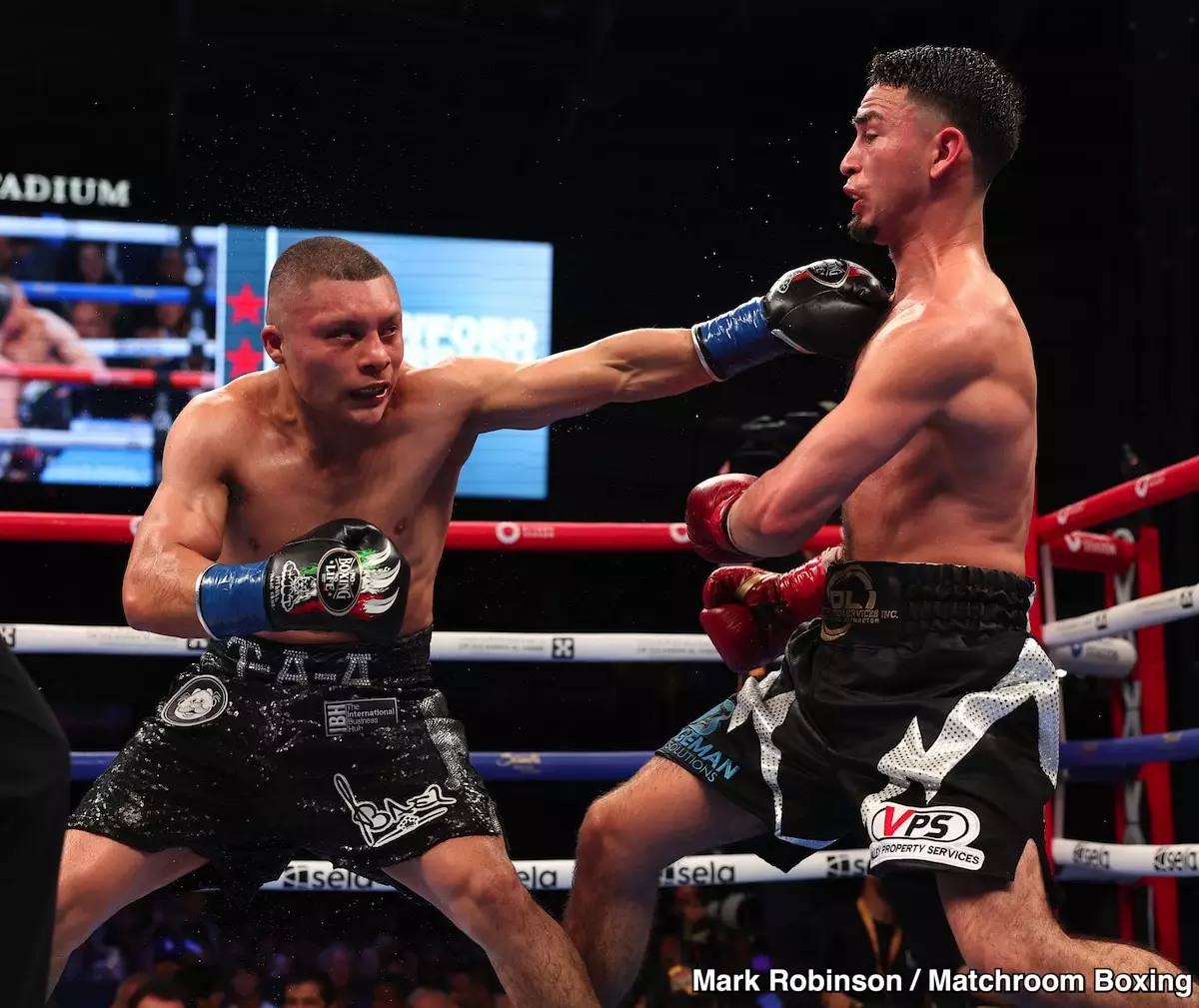In the world of boxing, losses can be as illuminating as victories, providing fighters with insights that can shape their future in the ring. Isaac ‘Pitbull’ Cruz’s recent split-decision defeat at the hands of Jose ‘Rayo’ Valenzuela on August 3rd signifies more than just another notch in his record. The bout, which ended with Cruz suffering from the realization of his opponent’s adept strategy, has prompted him to reassess his approach moving forward. Cruz’s insistence on downplaying the loss as an instance of Rayo resorting to evasive tactics is indicative of a fighter grappling with frustration. The nomenclature surrounding Valenzuela, dubbed the ‘Mexican Loma,’ speaks to his successful pivot from a brawler to a more technical boxer, a shift that challenged Cruz in the ring.
Cruz’s disappointment extends beyond the judges’ scorecards; it touches on a deeper yearning for the kind of fight where athletes engage directly, trading punches rather than dancing around the ring. His critique of Rayo’s strategic movement—describing it as akin to “running a marathon”—highlights a common tension in the sport. Fans and fighters alike often prefer a brawl over a tactical display, and the aesthetic nature of boxing can sometimes clash with the necessity for survival in a competitive setting.
Analyzing his performance, Cruz acknowledges the need for adaptation. With a record of 26 wins, 3 losses, and 1 draw, he realizes that continuing in the sport without evolving his skills could lead to further setbacks, especially as he transitions to the light welterweight division. His upcoming fight against Angel Fierro provides a valuable opportunity for Cruz to apply new tactics in the hopes of revitalizing his career. The fact that Fierro, a recognized slugger with a record of 22 wins and 2 losses, is less likely to sidestep confrontations brings a sense of comfort to Cruz. This matchup not only presents him with a chance to showcase his power but also allows him to work on refining his technique without facing an opponent who relies heavily on footwork.
Moreover, Cruz’s remarks about spending less time on negotiations underscore the urgency he feels in reclaiming his position in the sport. His aversion to lengthy discussions for a rematch with Rayo Valenzuela demonstrates a willingness to move on and focus on performance rather than prolonging his angst over a past loss. As Cruz stated, the essence of boxing lies in making punches—a principle he seeks to embody in his future bouts.
Transitioning to the 140-pound division will not be without its challenges, as fighters in this category are often characterized by their agility and skill. If Cruz hopes to chart a successful course, he will need to develop strategies to confront slick boxers who employ a similar evasive style to that exhibited by Valenzuela. The list of potential adversaries—such as Richardson Hitchins, Devin Haney, and Arnold Barboza Jr.—highlights the truth: success at this level demands an evolution in technique.
Cruz’s understanding that he can improve by learning how to cut off the ring, engage effectively during clinches, utilize his jab, and throw more combinations indicates a mature approach to his training. While he may not possess the same boxing finesse as some of his 140-pound counterparts, his power punches and fighting spirit could still yield victories. Recognizing how to exploit openings and control the pace of a fight against more agile opponents will be essential for Cruz’s resurgence.
Looking ahead, Cruz’s confidence shines through as he expresses excitement about his upcoming match against Fierro, where he aims to deliver an exciting performance for his fans. His remarks about feeling “better physically and mentally” suggest that he is open to personal growth beyond just the technical aspects of his boxing style. Furthermore, his ambivalence regarding a return to the lightweight division indicates a strategic mindset that prioritizes readiness for any opportunity, regardless of weight class.
Isaac ‘Pitbull’ Cruz has the potential to become a formidable force in boxing, but only if he continues to learn from his experiences. By embracing the realities of his recent loss while remaining open to adaptation and focused on future opportunities, Cruz is poised to carve a path that not only rekindles his success but also resonates with fans who appreciate the art of powerful, engaging boxing. The journey of a fighter often requires introspection, and as Cruz prepares for his next challenge, it’s clear that he understands the stakes of his sport—and the necessity to evolve.


Leave a Reply